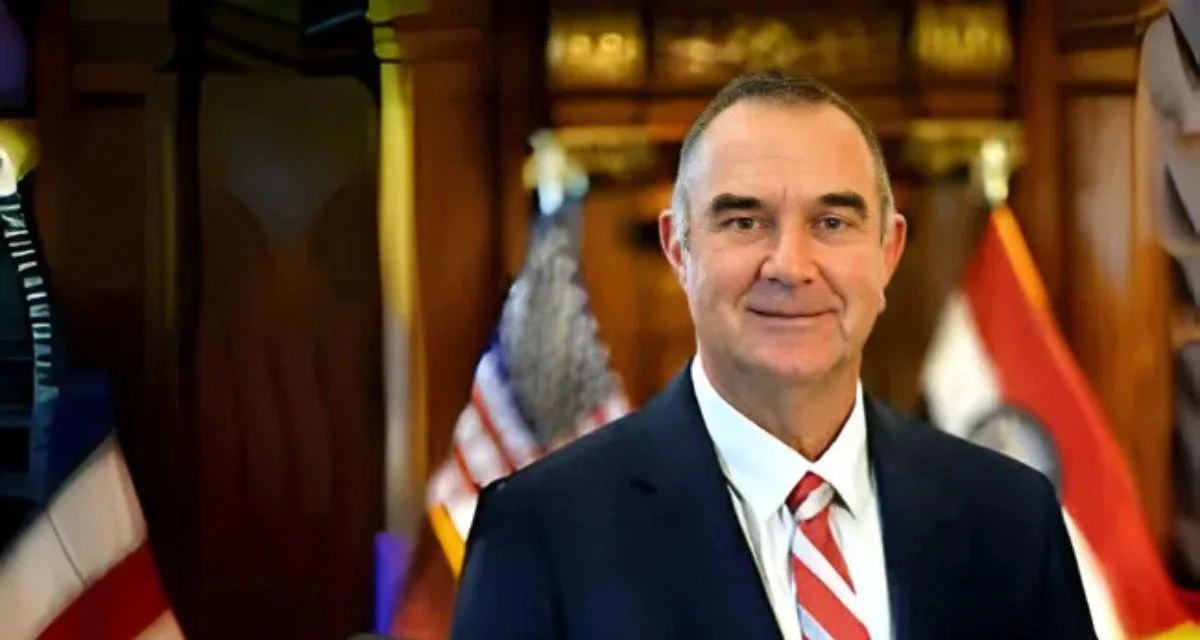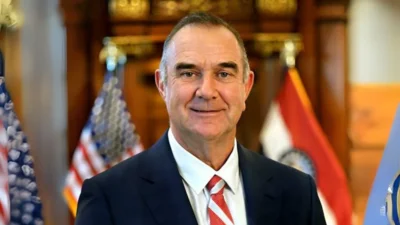Governor Mike Kehoe | Official Website
Governor Mike Kehoe | Official Website
Governor Mike Kehoe, together with the Department of Elementary and Secondary Education (DESE) and the Department of Higher Education and Workforce Development (DHEWD), has announced the release of the Governor's Workforce of the Future Challenge Report. This report, developed under Executive Order 25-16, provides a strategy to modernize Missouri’s career and technical education (CTE) system and enhance the state’s workforce pipeline.
“Missouri's future depends on preparing the next generation to take on the jobs that drive our economy,” said Governor Kehoe. “This report confirms that career and technical education is an essential part of Missouri's long-term economic strength. We must ensure that every student has the opportunity to succeed and every business has the skilled workforce it needs to thrive.”
Executive Order 25-16 was introduced during Governor Kehoe’s inaugural State of the State Address. The order tasked DESE, with DHEWD as a main partner, to lead a comprehensive review of CTE delivery across Missouri. Over four months, a working group made up of educators, business leaders, workforce experts, parents, students, and employers gathered input from more than 5,600 Missourians through surveys.
The survey results showed strong support for CTE programs. According to these findings:
- More than 92% of respondents viewed CTE positively.
- Over 90% believed CTE leads to higher education opportunities.
- Leadership skills and life skills were cited as key benefits.
- Business leaders called for improved partnerships with schools for internships and apprenticeships.
- Parents and educators requested clearer information about credentials and college credit transfers.
Based on this feedback, three priority areas have been recommended:
1. Strengthening work-based learning by creating innovation grants statewide, expanding registered apprenticeships, developing resources for non-traditional students, producing a toolkit for work-based learning experiences, and reviewing assessment tools such as WorkKeys.
2. Expanding early career exploration by starting counseling earlier in schools, increasing full-time advisors in K–12 settings, providing additional resources for students and counselors, and evaluating Missouri Connections—a platform designed to assist with college and career planning.
3. Launching strategic communication campaigns aimed at raising awareness about CTE opportunities statewide through social media efforts tailored by region and promoting success stories.
“This report shows that families, educators, and employers are united in support of strong career and technical education,” said Dr. Karla Eslinger, Commissioner of Department of Elementary and Secondary Education. “Our job now is to turn that support into action by expanding work-based learning, improving career advising, and creating clear pathways to high-demand careers.”
“By strengthening partnerships between schools, colleges, and employers we can prepare Missourians for long-term success,” said Dr. Bennett Boggs, Commissioner of Department of Higher Education and Workforce Development. “Missouri’s economy is strongest when education and workforce go hand in hand.”
The recommendations will be reviewed by the Governor’s Office as part of ongoing efforts to broaden access to CTE programs across Missouri.
For further details about career and technical education in Missouri visit https://dese.mo.gov/college-career-readiness/career-education.






 Alerts Sign-up
Alerts Sign-up